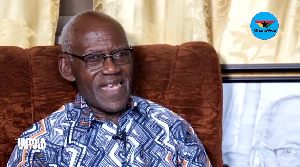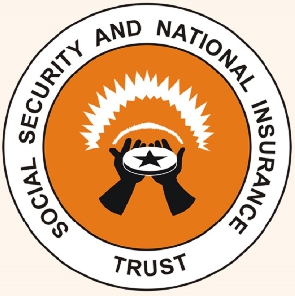- Home - News
- TWI News | TV
- Polls
- Year In Review
- News Archive
- Crime & Punishment
- Politics
- Regional
- Editorial
- Health
- Ghanaians Abroad
- Tabloid
- Africa
- Religion
- Election 2020
- Coronavirus
- News Videos | TV
- Photo Archives
- News Headlines
- Press Release
General News of Friday, 18 October 2002
Source: --
UN begins talks In Accra
Regional agencies of the United Nations yesterday began a two-day intensive talks on how to evolve contingency plans to deal with the crisis in Cote d?Ivoire.
The emergency meeting will develop a common humanitarian action plan to ensure that countries in the West African sub-region are not overburdened in dealing with the aftermath of the crisis.
The agencies attending the meeting include the United Nations Development Programme, the World Food Programme and the UN Children?s Fund (UNICEF), The Office for the Co-ordination of Humanitarian Affairs (OCHA) and Regional Support Office for West Africa. The meeting is being hosted by the office of the UN Resident Co-ordinator in Ghana. It is estimated and that there are 2,000 Ghanaians in Cote d?Ivoire, 700,000 Nigerians, 250,000 Burkinabes, 2,000,000 Malians 200,000 Beninois and 70,000 Togolese in the strife-torn country.
The meeting will prepare a consolidated appeal and submit it to development partners for assistance. Mr Alfred Fawundu, UN Resident Co-ordinator in Ghana, said the agencies have gone to the rebel-held town of Bouake to provide humanitarian assistance to those fleeing the conflict. He noted that all countries are vulnerable to conflict, saying, "it is important for the sub-region to face things squarely".
The sub-region, he noted, has a history of conflicts and that the UN should work in tandem with governments to address fundamental issues and watch out for what triggers such crisis. The UN agencies said the armed conflict has affected several thousands of other ECOWAS nationals and called for swift and concerted efforts to prevent further degeneration of the crisis.
It also came to light at the meeting that the spill over was threatening a humanitarian crisis, which, if neglected, would take a much longer time to address. "Indeed, the crisis in Cote d'Ivoire calls for swift and innovative approaches to crisis prevention, management and response as the implication of a further deterioration of the situation could spell disaster for the country itself and the sub-region," said Ms Besida Tonwe of the OCHA.
She was addressing the meeting on the crisis in Cote d'Ivoire in Accra. The immediate concern for these people, according to OCHA, was adequate food and shelter in addition to finding means of transporting them out of the conflict zone.
Ms Tonwe said the turn of events since September 19 has startled most Ivorians and shocked the sub-region, prompting the UN Secretary General, Mr Kofi Annan to appoint a special representative to help ease the tension.
Ms Tonwe said the Accra meeting would take a common position on the repatriation of West African nationals, immigrants and refugees and the protection of civilians in government and rebel controlled areas. The meeting is expected to establish linkages between humanitarian and political initiatives and agree on the prioritisation of beneficiaries.










